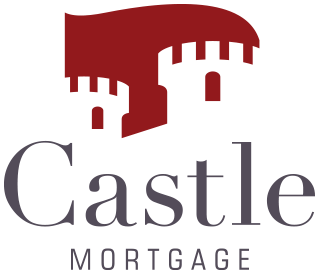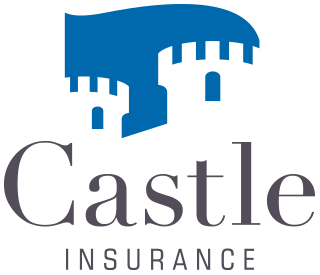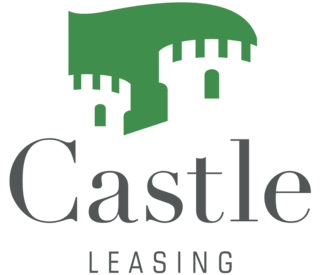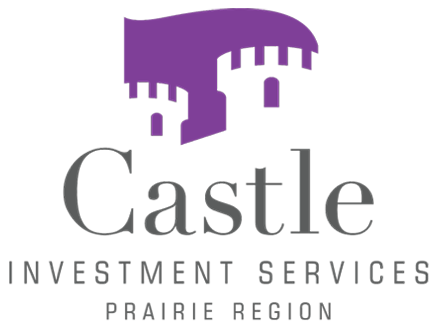Stay informed with The Sparrow Team.
News For You
Click on the headlines below to keep on top of business news and other current events.
The Stress Test
About 10 years ago now, the Federal Government instituted a new criteria that all Canadians needed to meet in order to qualify for mortgage financing. This is called t...
Purchase Plus Improvements
Based on the competitive nature of the real estate market all over the country, but specifically in Manitoba, it’s important to keep an open mind when you’re wa...
CMHC Insurance
It used to be, in the Canadian marketplace, that you couldn’t buy a house with less than 25% down. In 2007, the Federal government changed that requirement to 20% dow...
Mortgage Property Taxes
Property taxes in the Province of Manitoba are made up of two different elements. There are civic taxes and there are education taxes that are all lumped together to become...
Mortgage Pre-Payment Penalties
When you sign a mortgage for a period of, say, five years, you’re, in essence, signing a contract with your mortgage company for that same period of time. When you br...
Mortgage Timelines
The most confusing time for any new home buyer is the period between the day you make your successful offer and the day you actually get the keys. In some cases, it could b...
The Mortgage Minute Series
Click on these video links below for a Mortgage 101 course, featuring Jeff Sparrow.
Castle Insurance Videos
Click on the video links below to learn more about insurance from Castle and what it means for you.
Castle Mortgage Videos
FAQ
You can ask us anything you want about mortgages, insurance, and savings options over the phone or in person, but you might find your answer right here. Here are some of the questions we've heard over the years. Our goal is to help you understand everything about the process.
Mortgage
- I'm new at this mortgage thing. Where do I start?
- The first thing to do is relax and take a deep breath. Buying a home - especially your first home - is a big deal. Exciting and scary at the same time. The Sparrow Team will help take out the scary, and help you focus on the exciting.
When you've ready, the first step is to become "pre-approved" to purchase a house - and you can start that process right here, right now. The pre-approval process involves looking at your financial picture and figuring out how much you can spend on a house. With that number in hand, you can go into the marketplace with confidence and spend many weekends at open houses! - How does a mortgage work?
- If you get it from The Sparrow Team, it works really well... thank you very much.
In essence a mortgage is a loan that is secured by the property you have purchased.
Mortgages have a "term" - the period of time over which the interest rate holds firm. A term is typically five years. There is also "amortization" - the total time it will take you to pay the total mortgage. The typical amortization period is 25-35 years. The longer the amortization, the lower your regular payments.
Mortgages also typically allow you to make limited pre-payments against your principal during the life of the mortgage. - What kind of home can I afford right now?
- Refinancing means renegotiating the terms of your loan, whether to lower the interest rate, change the repayment period, increase the amount of the loan, or switch to an adjustable-rate loan from a fixed-rate loan, or vice versa. A new mortgage pays off the old one, and you begin making payments based on your new payment schedule and terms.
- Why would I even think about refinancing?
- The most common reason to refinance is to switch to a loan with a lower interest rate. Consider, for example, a scenario where your mortgage has a five-year fixed-rate term with an interest rate of five percent, while today's current rate has dropped to four percent. If you refinance, you'll have a lower interest rate over the term of your loan. However, that doesn't necessarily mean that you'll save money on the deal, either over the long term or on your monthly payment. There's more to it than that! Refinancing costs money, and you may be charged for a new appraisal, a penalty, and legal costs - all of which can add up to hundreds or even thousands of dollars. You may want to consider this rule of thumb: refinance if you can lower your rate by at least one percentage point. Sit down with us and we'll help you do the math.
Depending on your individual financial goals, there might be other reasons to think about refinancing. For example, if your income has increased and your priority is to get out of debt as soon as possible, you can refinance to a loan with a shorter repayment period - such as replacing a 35-year amortization with a 15-year amortization. This typically saves you thousands of dollars in interest. To finance a major expenditure such as a home renovation, college tuition, or a new car, homeowners with significant equity in their house might opt for "equity take out" refinancing, in which you increase the amount of principal you owe on your loan. If you're strapped for cash in the short term, you can lower your monthly payments by switching to a different type of mortgage (for example from a fixed to an adjustable-rate mortgage) or by extending your repayment period, although these options may increase your total interest costs over time.
An important consideration is how long you intend to stay in your home. If you think you might move in a year or two, the transaction costs may outweigh any potential savings you'll realize in such a short time frame. Another factor is whether there is a prepayment penalty on your current mortgage. When weighing the refinancing costs, you need to calculate how long it will take to reach the break-even point when your cost savings balance out the up-front fees associated with refinancing. For example, if your new monthly payment is $200 less per month, but you have to pay $3,000 in transaction costs, it will take you a little over two years to start saving money. To get a more precise estimate on your particular situation, enter the terms of the new mortgage into an online refinancing calculator that allows you to see whether it saves you money compared with your current deal. - How do I start?
- If you have an adjustable-rate mortgage (ARM) - one that varies with the Bank of Canada rate - and you think that rates will rise; or if you want the security of knowing exactly how much your future payments will be, you may want to consider refinancing to a "fixed-rate" mortgage. Or you may want to get another ARM that has more favourable terms, such as a line-of-credit option - this option allows you to access money in the future for investment purposes, large expenditures, your children's education, etc.
If you've built up a good deal of equity in your home, you may want to do a "cash-out refinancing" (also known as "equity take out refinancing") to get money for home improvements or other major purchases. In any case, you'll need to consider the cost of refinancing including closing costs and legal fees, and even prepayment penalties against the savings you will make by lowering your interest rate and monthly payment. Finally, all these calculations need to be seen in the context of how much longer you plan to live in your present home.
The first step you should always take is to complete an application so The Sparrow Team can assess your own unique and personal mortgage situation. This step will give us all the necessary information to allow us to "shop" the entire mortgage market and secure the best possible mortgage deal available for you.
Our application is available online here.
We will follow up with a meeting where we will help you understand the entire refinancing process and how the expected costs and savings will affect you. - What will my refinancing costs be?
- Refinancing a mortgage always carries some standard costs and usually requires a visit to a lawyer. To make it easier for you, we have a law office in our building and have arranged for special pricing for our clients.
Each refinanced mortgage transaction is somewhat unique, but here are examples of some factors that can affect your final costs:- changes in title if someone who is currently on title of the home has to be removed for some reason;
- multiple mortgages on title that have to be discharged or registered; and
- many different debts paid out by the lawyer.
- I'm ready to buy a home. How do I get approved?
- Having right mortgage is vital to your financial well-being! Just as you would consult a professional to manage your investments, you should have a professional manage your mortgage financing - and The Sparrow Team are the right people to get your the help you need.
Before making an Offer to Purchase, it is very important to know what type of mortgage financing you are qualified or pre-approved for. Our pre-approval process considers your total financial picture in order to assess the borrowing limit for your new home. This will include a credit check. Rest assured that the process is highly confidential and we treat your personal information with absolute discretion.
At the end of the process (which does not take very much time at all), you will get a Letter of Pre-Approval that can be shared with the realtor and the seller of the home you want to buy. The letter gives everyone the confidence to proceed (and could also give you the edge in a bidding war!).
As part of the process, we will be able to provide you with an interest rate that will hold firm for three or four months so you can take your time knowing that your rate is secure.
Take a look at our easy-to-complete Mortgage Pre-Approval Form. Fill out all the fields as accurately as possible in order to speed up the process and allow your Pre-Approval to be processed quickly. - How much should my down payment be?
- It used to be that you needed to put down 25% of the purchase price order to qualify for a mortgage. That has changed over the years and the Canadian government and the three mortgage insurance companies continue to work together to find ways to make home ownership easier and more affordable for all Canadians.
If you can provide just a 5% down payment you can usually qualify for the best interest rates and mortgage options available.
Our clients have sourced their down payments from persona savings, RRSP savings, investment proceeds, gifts from family, and proceeds from the sale of another home.
Mortgage companies and mortgage insurance companies will require proof as to where your down payment originated. For example, savings in the bank must be proven with 90 days' worth of bank statements to show an accumulation of the savings over time.
Under the Home Buyer's Program, the Canadian government allows you to withdraw up to $25,000 of your RRSP savings (per person on title) with no tax consequences if you have not owned any property in the last five years. It is a great way to use your RRSP savings for your down payment as you will have approximately 17 years to repay your RRSP withdrawal.
A financial gift from a family member is also a common way to make a down payment. In this case, the family member must complete a gift letter and ensure that the gifted money is deposited to your account at least 15 days prior to your possession date. - How much will my mortgage payments be?
- The most important question to answer as you start to plan a budget for buying your first home is "How much will my mortgage payments be for my home?" It is crucial to know what to expect your monthly or bi-weekly mortgage payments to be, as well as property tax payments, condo fees (if applicable), and utility payments.
Our handy Sparrow Team Payment Calculator will help you figure out your payments. You can enter your desired purchase price, the percentage of your down payment, and your desired amortization period (how long you'd like to take to pay off the mortgage). Property taxes are very specific to your home's location. A general rule of thumb for estimating your property taxes is to assume that they will be 1% of the purchase price of your home. Divide that number by 12 to estimate your monthly property tax payments. - What will my legal fees be?
- In Manitoba, you can estimate that your legal fees will reflect 2% of the purchase price. Keeping this in mind will help you make sure that you have enough money available to bring to your lawyer's office to close the deal. The fees break down into the following pieces:
In Manitoba, you can estimate that your legal fees will reflect 2% of the purchase price. Keeping this in mind will help you make sure that you have enough money available to bring to your lawyer's office to close the deal. The fees break down into the following pieces:- Your lawyer's professional fee, typically $500-$600
- A fee for registering a mortgage on your new home at the Winnipeg Land Titles Office - $81
- A fee to perform a tax search on the new property - $35
- A fee to have your lawyer ensure that the property purchased complies with all municipal zoning regulations and obtain a Zoning Memorandum when necessary - $51
- A series of fees for title searches, ordering caveats from microfilm, fax charges, attending at the Land Titles Office to register documents, photocopying, couriers, and other miscellaneous charges - approximately $110-$175
- The largest component of your legal and closing fees is the Land Transfer Tax. Registration at the Land Titles Office comprises this fee which rises in proportion to the purchase price of your home. Click here to see the current Land Transfer Tax table (see the O&F brochure).
- You might require a new Survey Certificate for your home - approximately $375
- What kind of documents do I need to show you?
- To help us move toward your pre-approval, we'll need a current paystub to show your current gross and net pay; recent T4s or T4As to show your earnings from last year; an employment letter so that we can learn about your total compensation and the nature of your employment; a Canada Revenue Agency Notice of Assessment; your T1 General Tax Return; and 90 days of bank statements. To see sample of these documents, click here.
- What is an "Offer to Purchase"?
- An Offer to Purchase form is the formal document that makes an offer to buy a house. It states the offered price, the down payment, any conditions, and other elements. Your real estate agent of lawyer can help you complete the offer.
Insurance
- I keep hearing about "term" life insurance and "whole" life insurance. What's the difference?
- "Term" life insurance is a policy that is in place for a set amount of time - 20 years, for example. You pay a monthly fee (known in insurance lingo as a "premium") for the length of the policy. If you die during the term of the policy, your beneficiary will receive the death benefit. Once the term is up, you are no longer paying and you are no longer covered. You can get a new term policy, but rates and conditions will be different as you get older.
"Whole" life insurance is one of several types of permanent life insurance. There is no fixed term. Instead, you continue to pay premiums throughout your life as the policy gains a cash value. If you die at 95 years old, your beneficiary still gets the death benefit. And because the policy gains a cash value over time, you can borrow against it during your lifetime. - So, what type of life insurance do I need?
- Like many of the questions you might have, the answer is "it depends." If you come in for a cup of coffee, we will ask each other a whole bunch of questions to figure out how your insurance needs can best be met. Generally speaking, the answer lies in your age, your health, your financial goals, what other assets you have, and other factors. We'll talk it through with you... and it's pretty good coffee.
- So what do you do, besides pour a pretty good cup of coffee?
- With The Sparrow Team, our role is to find the best life insurance options for you. As a broker, we don't just sell one type of insurance product. We get familiar with every major insurance option out there and figure out what's best for you. We listen to you, we scour the market, and we connect you with the best possible policy for your situation - at the best possible price.
- Can I have more than one life insurance policy?
- Sure. When you come in to see us, make sure you bring in details of what you already have. It might make sense for you financially to combine existing term life policies with new ones so you're getting the most coverage and the least cost. And if you already have a whole life policy, we'll encourage you to hold on to that while you consider supplementing that with a term life policy.
- How do insurance companies figure out how much I have to pay?
- Life insurance premiums are based on three major factors: your current state of health; your family medical history; and your age. The healthier and younger you are, the less you pay. It makes more financial sense to get life insurance now than later.
- Can a smoker get life insurance?
- We've heard about smokers who don't even have the insurance conversation because they automatically assume that they won't be eligible. Well, that's not always true. Some smokers can still be insured. The rates and conditions will likely be affected, but there might be options available. The only way to know is start the process.
- Are life insurance premiums tax deductible?
- Generally speaking, no. Life insurance premiums are not tax deductible. On the other side of the coin, death benefits are not taxable.
- I have insurance through my group plan at work. Why do I need a whole other policy?
- Let's answer a question with another question... when was the last time you looked at that policy? Chances are that your group life insurance from work pays out one or two times your salary. That's nice, but will it be enough for your surviving spouse to raise the kids? And what happens if you leave your job tomorrow? When you meet with us, it's a good idea to bring in your group plan documents so we can help you make decisions informed by your total picture.
- I have insurance on my mortgage through the bank. Why do I need more insurance?
- Ooooh. Lots of reasons. In fact, before purchasing insurance on your mortgage through the bank, come talk to us (and not just because we have better coffee than the banks). Historically, banks have charged premiums as if every policy-holder was a male smoker. Right away, you could be paying more. Plus, when you get insurance through your bank, you have to pay PST. Ouch.
Also, when one spouse dies, the policy pays out to cover the mortgage. That's nice, but if mortgage insurance is your only life insurance, the surviving spouse is left without a policy for other beneficiaries in the family. With term or permanent life insurance, each spouse would typically be covered separately.
Another caution with mortgage insurance through your bank is that the "underwriting" occurs after you die. That means your medical records are considered after you pass away. Evidence of a pre-existing medical condition could possibly void your policy. With the type of insurance The Sparrow Team promotes, all of the underwriting happens in advance. Benefits are guaranteed. No surprises. - What is a life insurance medical exam?
- Depending on the type and amount of insurance you are considering, you might have to undergo a medical exam. Like ordering a pizza, someone will come to your home. Unlike ordering a pizza, that person is a nurse who will take blood and urine samples and ask you a number of questions about your health and family history. When the nurse leaves, feel free to order a pizza.
- Who sees my medical records? Will they remain private?
- The results of the exam will only be seen by the underwriter at the insurance company. No one else - not even your friends with The Sparrow Team - will see your medical records. The insurance industry absolutely respects the privacy of its clients and potential clients. (You can have results sent to your family physician if you like.)
- Speaking of privacy, how does the use of illegal drugs affect insurance applications?
- If you use heavy drugs - like cocaine, for example - you might be excluded for a while. It is possible to be eligible for life insurance after a drug-free period of time. The best way to know is to start the application process with The Sparrow Team. Your privacy is absolutely respected.
- What about marijuana?
- Casual marijuana users are typically treated the same way as smokers when an application for life insurance is being considered. That means you might still qualify for life insurance, but your rates and conditions might be different. And, yes, the fact that you use marijuana remains confidential.
Downloadable Documents and Forms
Below you will find a selection of commonly used documents and forms that you can download in Adobe PDF format. If you are having trouble opening these documents, please be sure you have the latest version of Adobe Reader installed.
Payment Calculators
Let our payment calculators help you answer your questions about a mortgage quickly and easily. We will be adding various calculators over the next little while so you can change the mortgage scenarios using different down payments, terms, interest rates and more.



